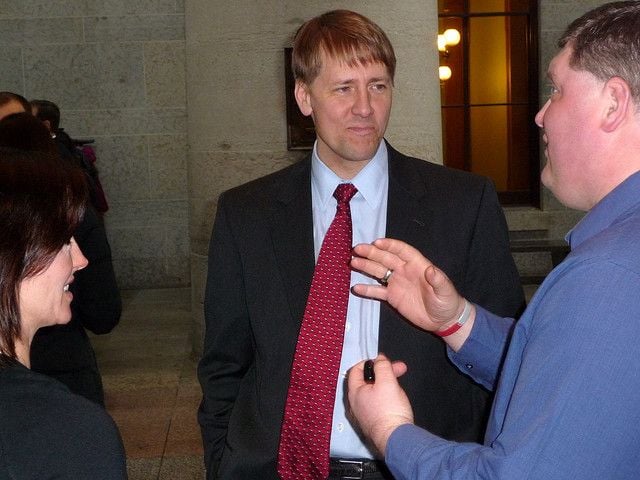One of the hard parts about standing up a new federal agency meant to help citizens is, as it turns out, letting citizens know you exist.
After a long and bruising fight, the Consumer Financial Protection Bureau came into being back in the summer of 2011. “Consumer watchdog” is President Obama’s useful shorthand for what CFPB is supposed to do. But in its quest to inject itself into the American thought process around financial products, CFPB is trying out an intriguing tactic: Getting hooked into cities’ 311 systems.
People, it seems, ring up city non-emergency lines to complain about everything from mortgage troubles to credit card woes to annoying debt collectors. Cities, traditionally, aren’t well equipped to deal with these sorts of complaints. Under this program, those calls are forwarded to operators at CFPB. (The CFPB assures callers that they’re about to connect with a federal agency. They can, of course, hang up.) The 311-to-CFPB program has been tested in five cities: Boston, Newark, St. Louis, Jackson and Columbus.
For all the attention given to Sen. Elizabeth Warren’s successful bid to make a CFPB and unsuccessful bid to head it up, Americans aren’t in the habit of contacting the agency with their financial product problems. It’s a smallish agency with an annual budget of $540 million — which sounds like a lot until you consider that, say, the Treasury Department’s budget is $14 billion— and a Super Bowl commercial is probably off the table. Thus, 311. It means that one doesn’t even need to know CFPB exists to benefit from the help it can provide.
A contact at CFPB explains the process. An incoming 311 call is routed, with all due transparency, to CFPB operators. The caller is then given the option of filing a real complaint. If she choses to do so, the report enters into CFPB’s six-step resolution process. From there, it goes to the allegedly wrongdoing company to tackle. The complaint bounces back to CFPB only if the company doesn’t handle it, and many bigger financial firms have the staff in place to readily field complaints. Resolved complaints and unaddressed complaints older than 15 days go into an anonymized online public database, one that the agency thinks could, over time, become something of a Yelp for financial businesses.
The 311-to-CFPB pilot project has been modest in scope thus far, but it has seen enough success to convince the agency of its potential. CFPB is partnering with the U.S. Conference of Mayors in an attempt to add dozens more cities to the program before the agency’s third birthday in July.
It’s the sort of thinking that flows from the DNA of CFPB. While getting the agency up and running, Warren was explicit about her belief that tech and data can rebalance the financial marketplace and upgrade the way a government office works with the public. “Today, information is king — but information is not evenly accessed by all,” Warren has said. Here, CFPB piggybacks off the fact that 311 is becoming a standard part of the repertoire of any well-managed city — and that people have taken to using it for a wide range of things beyond noise complaints and pothole-filling.
Speaking last week at the U.S. Conference of Mayors’ winter meeting in Washington, CFPB Director Richard Cordray made the case for engaging via 311, saying that “these pilot partnerships have been a great win-win. Consumers can reach the Bureau more directly. Cities can potentially lighten their loads and refer their residents to the experts.”
Looking at it from CFPB’s perspective, there are other upsides. Making use of local 311s could mean gathering considerably more complaints than it might get directly. All that information gives CFPB a broader view on what Americans deal with when it comes to consumer finance. It’s the sort of insight that can make an agency smarter, more effective, and better able to defend its existence in a Washington that hasn’t always wanted it.

Nancy Scola is a Washington, DC-based journalist whose work tends to focus on the intersections of technology, politics, and public policy. Shortly after returning from Havana she started as a tech reporter at POLITICO.








